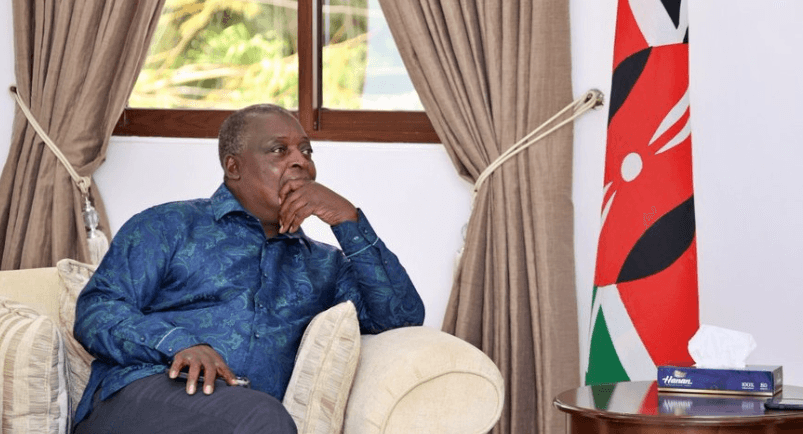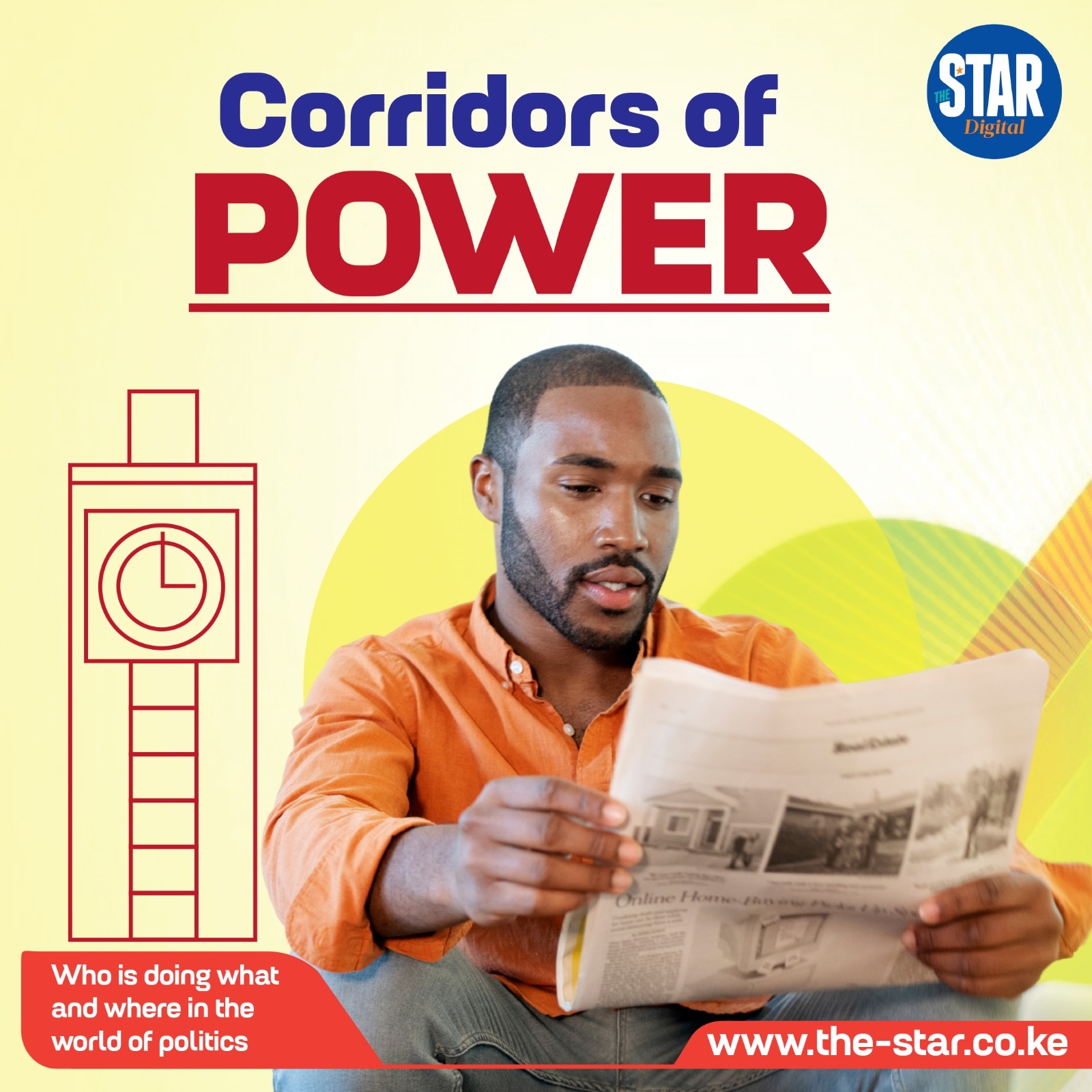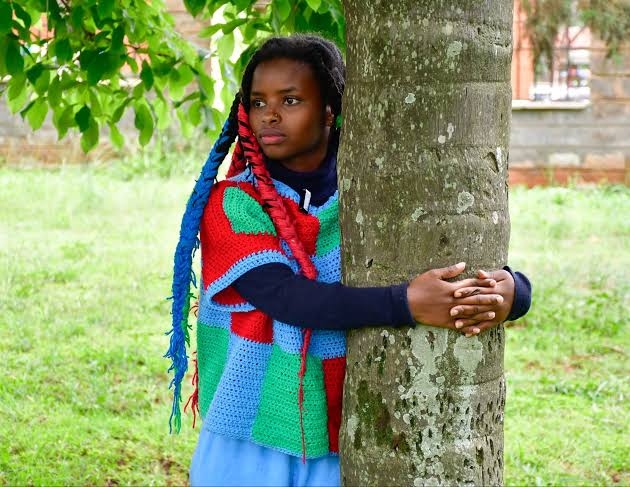When it comes to long-distance running, Kenya and athletics are a match made in heaven.
Kenyan athletes have raised the value of the country's brand by virtue of their exploits in the marathons, half marathons and long-distance track races.
At home, in a land where politicians are generally mistrusted, athletes are considered true heroes who work hard for the millions they acquire and bring much joy to the country even in times of gloom.
Even as fans cheer themselves hoarse in celebration of their exploits, many athletes suffer in silence behind closed doors as they struggle with life's challenges.
Silence often seems an appropriate strategy until these tribulations burst at the seams and overflow into the public domain.
The circumstances of World 10,000m silver medalist Agnes Tirop's death in September left the country in tears and shock.
Her husband, Ibrahim Rotich, has been charged with murder after the former 30km women-only world record holder was found with a stab wound on the neck at their Iten home.
A week before Tirop's demise, former Africa Junior Championship silver medalist Hosea Macharinyang' was found dead at his West Pokot home in an apparent case of suicide.
These two incidents are not isolated, rather are part of a long line of misfortunes befalling athletes including marital woes, financial desolation, alcoholism and substance abuse, among others.
Strength to speak
In the aftermath of these shocking incidents, athletes have now found the courage to air their grievances with the aim of finding a long-lasting solution.
For the past two weeks, Athletics Kenya officials, led by the chair of youth development sub-committee Barnaba Korir, have been traversing the country in face-to-face deliberations with stakeholders.
They have thus far met athletes (current and retired), coaches, managers, local officials and other stakeholders in nine areas, including Ngong', Machakos, Nyeri, Nyahururu, Kisii, Keringet, Kericho, Chuka and Bomet.
Korir said this series of consultative fora is necessary to understand the ills and ails of the athletics sector to diagnose and treat them.
"I am happy to see that many of you have turned up today more than we had anticipated for this important discussion. At the end of this programme, we need to ask ourselves…what ails the industry? How can we help our athletes,” Korir said during the first meeting in Ngong'.
Sessions have been largely open with everyone allowed to speak out on the pertinent issues, which require urgent attention.
Expectedly, prominent matters that have come to the fore include rogue coaches, lack of proper training facilities, poor investment of winnings and athletes' illiteracy as well as the subsequent need for education.
However, other stakeholders have spoken candidly and highlighted certain issues that were hitherto inconceivable as a sore thumb within the fraternity.
Neglected boychild
Olympic 5000m silver medalist Hellen Obiri had ears perked up as she cried out in support of male athletes and called for more empowerment campaigns targeted at them.
Whereas cases of female athletes being sexually exploited or harassed have been highlighted extensively, Obiri feels that their male counterparts undergo the same but unfortunately remain unreported.
"There are some type of women who entrap male athletes in the name of love, trick them into spending all their money and afterwards take flight, leaving our brothers heartbroken," the world 5000m silver medalist says.
She feels money is an illusion for many athletes who throw caution out of the window when getting into relationships without conducting a background check.
"You need to undertake a background check of whoever you are living with. How can you be staying with someone for 10 years yet you have never gone to their ancestral home? You never know...maybe they have five other spouses at home," Obiri said.
In a patriarchal society that lumps increased responsibilities and expectations on the boychild, it is no surprise that male athletes are required to shoulder the burdens of their families and society.
The world under 18 2000m champion Leonard Bett peeled back the curtain to reveal the pressures male athletes face in catering to the needs of their family members.
"Most athletes are very young and it is during this time that things are usually tough especially finances. We need additional forums where we can speak our minds out and maybe get people to understand how much affected we are by the pressure they put on us," Bett said.
He shared his own experience in the wake of the World Under 18 championship in 2017 in Nairobi after winning gold on home soil.
"I remember when I competed at the World Under-18 in 2017. After three or four months, I was not doing well financially yet the expectation from the family and society was that I was swimming in money," the 21-year old recounted.
Tough love
Athletes' representative in Kericho, Peter Cheruiyot, admits male athletes have it rough at home as they struggle to successfully juggle between career and family.
"We forget that athletes are human beings and also undergo mental stress as a result of family issues. Many of the male athletes struggle with management of family affairs but choose to keep quiet unlike their female counterparts who are more vocal about it," he says.
Cheruiyot also points out that athletes' management also cause rifts between athletics couples by advising them against certain decisions in the interest of the family.
"You find that an athlete would want to sire or give birth at a certain period but is however dissuaded from doing this by their management in interest of an upcoming competition. Such an athlete is preoccupied with competition at the expense of their family and this leaves their spouse unhappy," Cheruiyot says.
His sentiments follow on from another athlete's comments in Ngong' where she spoke of the effect of a busy schedule on couples' sexual lifestyle.
"An athlete comes back from training in the evening and is too tired to fulfill the conjugal needs of their spouse. With time, the dissatisfied husband or wife seeks to satisfy this need elsewhere and this leads to matrimonial problems in the home," the athlete said.
Growing pains
From the deliberations thus far, it has become clear that junior athletes experience more challenges than their established counterparts.
Coming from a humble background, most junior athletes struggle to find proper training facilities and kits, which open expose them to preys who entice them with these offers.
During the consultative meeting in Bomet, 3000m specialist Desma Chepkoech pleaded with AK to provide more training facilities to junior athletes to guard against rogue coaches who use this to exploit them.
"When we start, we do not have enough training facilities. This is when these coaches promise to give you that if you get into a relationship with them. You are then left with no option but to bow these demands," Chepkoech said.
Similarly, 2014 Commonwealth 5000m champion Caleb Mwangangi said that many budding careers have been cut short by the curse of poverty.
"Considering the poverty levels in this region, finding food to enable junior athletes to train is a major challenge. To meet these needs, many end up in illicit relationships with Boda Boda riders who distract them from athletics or exploit them financially once these athletes succeed," Mwangangi said.
Next steps
Korir says the federation has harnessed rich information from stakeholders, which will inform their action plans to move athletics forward.
He admits they did not expect some of the issues highlighted by athletes and points out that time is of the essence in resolving them.
"We have heard extensively from female athletes on coaches and this is information captured that we will use to study exactly what is happening. It is shocking to discover that things are happening, which are affecting athletes," Korir says.
However, he is grateful for everyone who has come forward to speak.
"It is fortunate that these issues are coming up at this time so we can collate this information and see how we can move forward from there. But first, we will look into the issue of coaches and training camps and come up with stringent measures to govern them," he explains.
This is easier said than done...there have been many more workshops and seminars in the past to empower athletes on how to mitigate the various issues in their lives.
Considering they have been given the chance to speak this time around, their eyes will be firmly set on AK and relevant agencies to actualise their suggestions. The race to a better athletics fraternity has just begun.
















